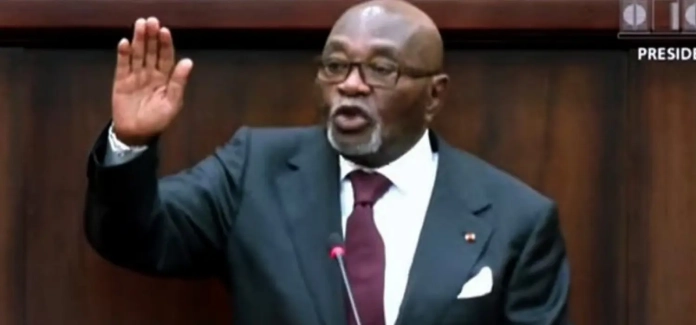Elected by Congress on May 3, 2025, Jean-Lucien Savi de Tové currently holds the office of President of the Republic of Togo—but without an official residence or workplace.
As the country formally transitions to a parliamentary system, executive power is now vested in the President of the Council—currently Faure Gnassingbé. While the presidency has become a ceremonial role, it still carries significant symbolic weight. Yet, nearly two weeks after his swearing-in, Savi de Tové has no designated place to live or work.
According to sources familiar with the matter, Togolese authorities are considering assigning him a residence in one of Lomé’s two modern administrative complexes, possibly the Millennium City. However, no final decision has been made. For now, President Savi de Tové continues to live in his private home, located in a modest neighborhood of the capital.
This unusual situation has raised eyebrows. Many are questioning why the head of state has not been accommodated in one of the country’s two historic presidential palaces. The Kégué Palace, a luxurious complex built under the rule of Gnassingbé Eyadéma, is currently occupied by Faure Gnassingbé. The Marina Palace, located on the seafront and technically unoccupied, still hosts some presidential services. Yet neither is being considered for the current president.
An institutional oddity
The situation prompts a deeper question: what role does the presidency truly hold in Togo’s new parliamentary system? Analysts argue that this logistical vacuum undermines the stature of republican institutions. The imbalance becomes even more glaring given that the President of the Council—the de facto head of government—has access to multiple official residences: Kégué, the Marina, and his private family residence in Lomé 2.
This asymmetry highlights a symbolic imbalance at the heart of the executive branch: a president without an office or official residence, while the head of government concentrates all the instruments of power, including logistical ones.
Some observers go further, suggesting that the presidency is being deliberately minimized. They argue that Jean-Lucien Savi de Tové was chosen to serve as a purely symbolic figure during a carefully managed institutional transition. The lack of a clearly defined presidential office—materially and politically—only reinforces that perception.
So far, no official statement has clarified where the presidency will be based or whether one of the historical palaces will eventually be assigned to it. For now, the country’s head of state is an experienced and respected figure—but one who remains isolated. And the lack of clarity surrounding his role reflects the lingering shadows of over fifty years of centralized presidential power in Togo.


